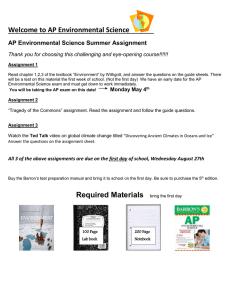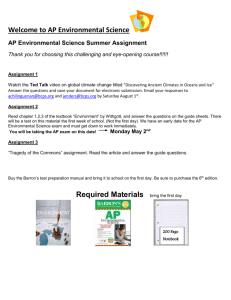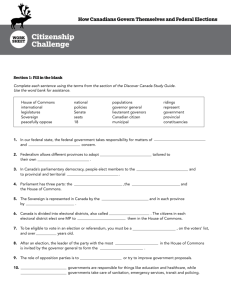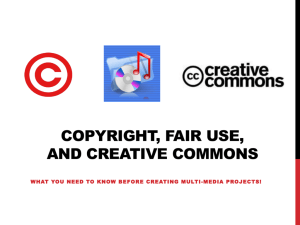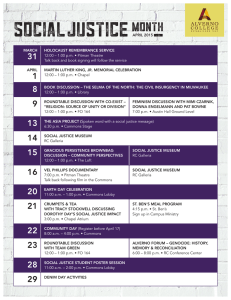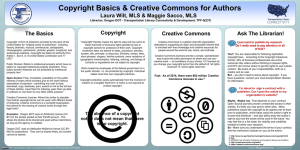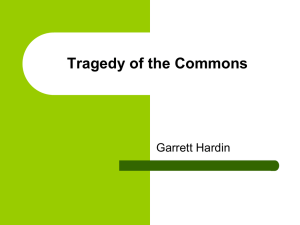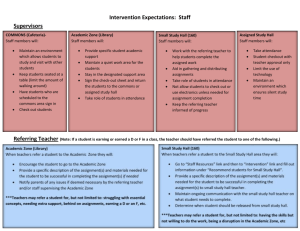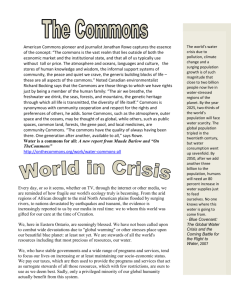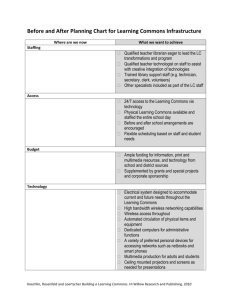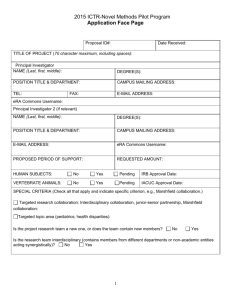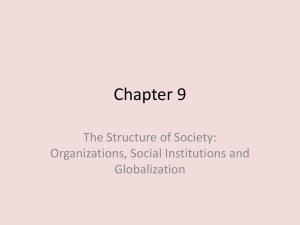DOWNLOADING FILES
advertisement
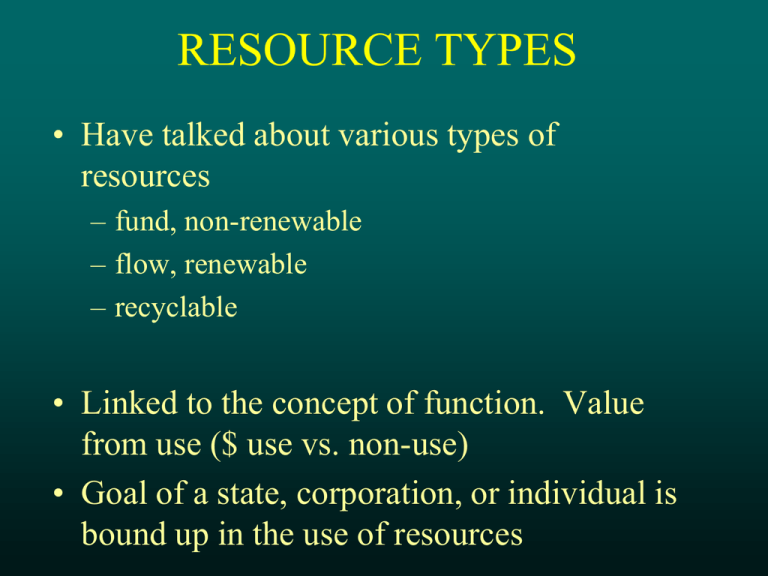
RESOURCE TYPES • Have talked about various types of resources – fund, non-renewable – flow, renewable – recyclable • Linked to the concept of function. Value from use ($ use vs. non-use) • Goal of a state, corporation, or individual is bound up in the use of resources • Introduction of another way of looking at function, therefore another way of looking at resources COMMON PROPERTY RESOURCES • These can be defined as shared resources – air could be seen as an example. All share in breathing but it has other uses (heating, cooling, source of nitrogen (fertilizer) and so on • The sense of common property dates back to the origins of humans. Hunting and Gathering societies had the notion of personal property but the “area” was the groups interest • The term “commons” initially referred to livestock grazing areas, woodlots and fish ponds • These were collectively owned and used by communities of peasants in medieval England • The Commons were not abused because each person had a responsibility to their neighbours • Rights of access and use were defined by customary laws. Social relations and customs associated with each community • The right to use the Commons was a privilege that could be revoked by the leadership of the group WHY DOES THE SYSTEM CHANGE AND WHAT ARE THE IMPLICATIONS? • The system works for many years because villages were small, demand was lower, the number of cattle on the commons would be lower – – – – – low demand disease poaching wars BUT 1 The notion of creating surplus value from the harvest became commonplace. Excess can be sold and the return could come back to the individual who has produced the surplus. 2 The concept of private property. In Garret Hardin’s Tragedy of the Commons if each herdsman had the opportunity to obtain extra from grazing more cattle on the Commons then it was best to graze as many as possible • The utility of adding one animal to a herd is obvious. – Meat, hide, etc. • The additional grazing may lead to overgrazing but the costs of correcting this (new land, land improvements) are borne by all the herdsmen BENEFITS OUTWEIGH COSTS • This is a rational decision to increase the herd • Each member is rational • As Hardin concluded, each herdsman is operating in a system that ultimately destroys the resource base • “FREEDOM IN A COMMONS BRINGS RUIN TO ALL” Canadian & American Politics • It seems self-evident to me that Republican and Conservative environmental policy promotes the tragedy of the commons. • These groups, by moving to slash the government's role in environmental protection, are putting the decision-making back in the "invisible hand" of the marketplace, which will always, inevitably decide to add that additional animal to the commons. Modern Example - Fisheries • The individual gains at the expense of the whole • Whoever gains the ‘crop’ first and takes the most wins • All society shares in the impacts Great Lakes • The Great Lakes contain about 18% of the world’s fresh water • About 42 million people live in the basin • About 20 million draw their drinking water from the Lakes Our Environment - A Canadian Perspective • Uses – – – – – – urban development industrial commercial agricultural hydroelectric recreation • Commercial and sport fishing and associated tourism is worth $4.2 Billion a year • Report released in 1988 by the Federal Government (not endorsed) found: – people in the Great Lakes Basin have higher rates of cancer, birth defects and heart disease – 2002 – medical drugs in drinking water – In drinking water, agricultural soil and rain in the area are found PCB’s, Dioxin, Mercury, Insecticides and over 300 other toxic substances
